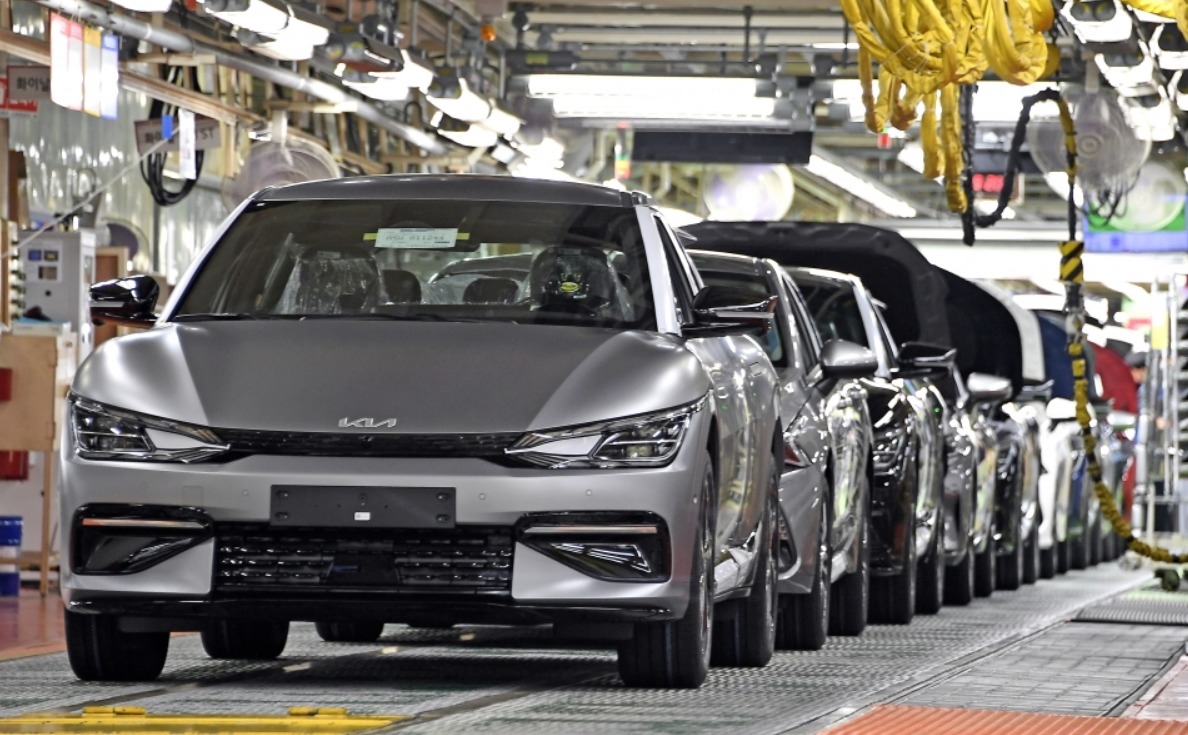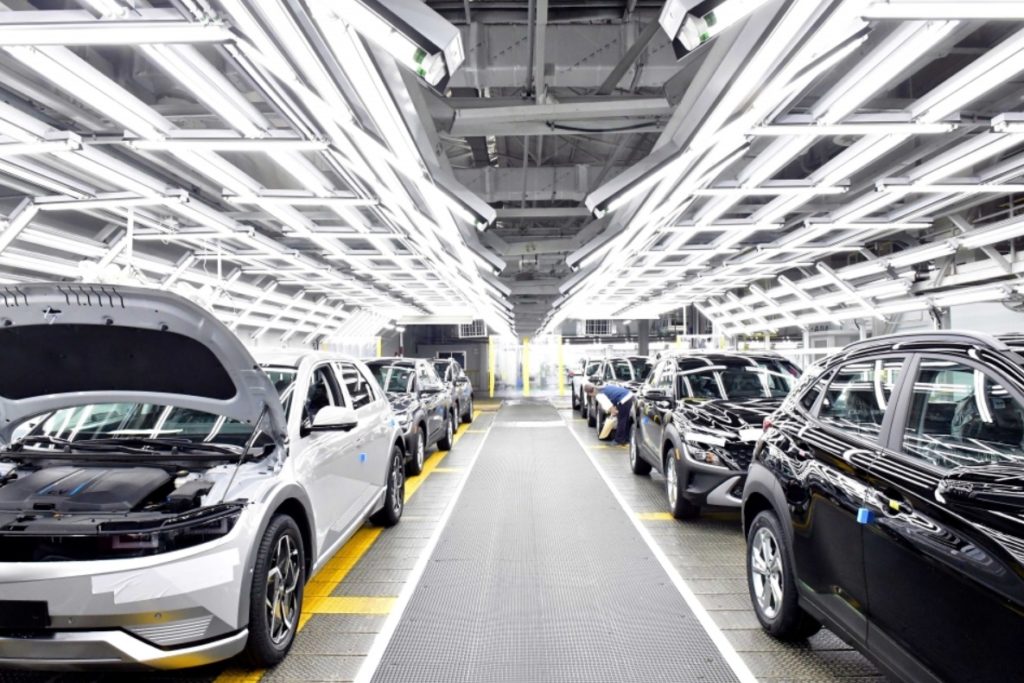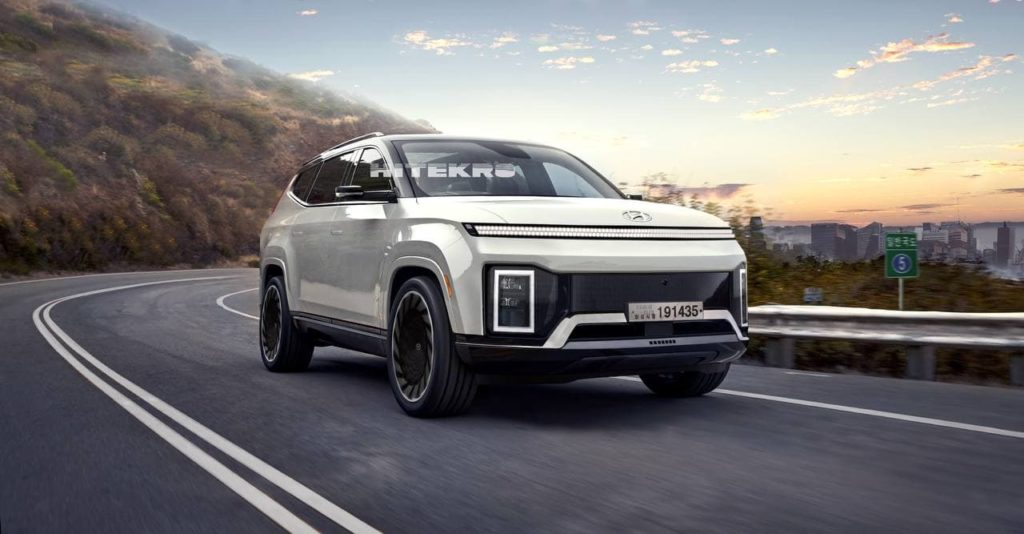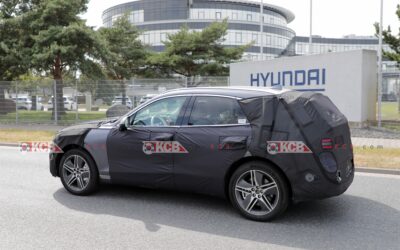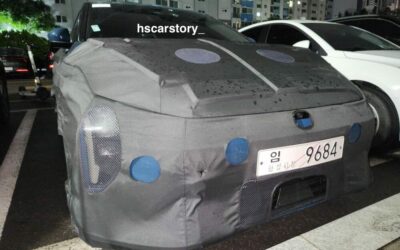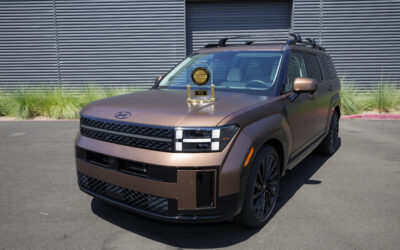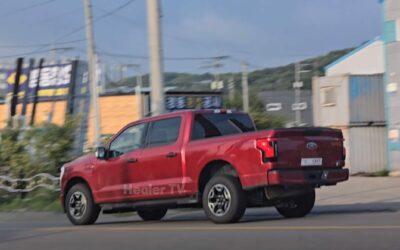Hyundai & Kia announced that they will invest a total of 21 trillion won (16,5 billion dollars) in the electric vehicle sector in South Korea from now on to 2030. At the same time, the annual domestic electric vehicle production, which is expected to be 350,000 this year, will be significantly expanded to 1.44 million by 2030.
1.44 million units are equivalent to 45% of Hyundai Motor and Kia’s global electric vehicle production in 2030. Hyundai Motor Company and Kia Motors plan to produce 3.23 million units of electric vehicles by 2030.
The large-scale investment by Hyundai Motor and Kia in the domestic electric vehicle sector is aimed at upgrading the domestic electric vehicle ecosystem and strengthening the role of a hub leading the global automotive industry innovation.
In addition, it is expected that the virtuous cycle of domestic electric vehicle production-R&D-infrastructure-related industries will be promoted.
As part of expanding domestic production of electric vehicles, Kia will invest hundreds of billions of won in AutoLand Hwaseong to build a new-concept PBV (Purpose Built Vehicle) electric vehicle factory with an annual production capacity of up to 150,000 units. Kia officially announced this plan on the 18th.
■ Advancement of the domestic electric vehicle ecosystem, including production capacity, next-generation products and prior technologies, and infrastructure.
The 21 trillion won invested by Hyundai Motor and Kia in the domestic electric vehicle sector by 2030 will be used for expansion of electric vehicle production capacity, diversification of dedicated electric vehicle lineup, development of parts and prior technologies, establishment of infrastructure, and strategic alliances to explore new businesses related to electric vehicles. do.
In order to expand domestic electric vehicle production capacity, Hyundai Motor Company and Kia will first establish a PBV electric vehicle-only plant, gradually build a mixed production system for internal combustion engine and electric vehicles, and expand electric vehicle-only lines at existing plants.
In order to innovate and optimize electric vehicle production, Hyundai Motor Group’s future manufacturing innovation technology incubator, Singapore Global Innovation Center (HMGICS)’s flexible production system, customized logistics system, and digital manufacturing system will be introduced in stages to domestic plants.
Hyundai Motor Company and Kia Motors will also invest heavily in R&D, such as developing platforms for next-generation electric vehicles, expanding product lineups, developing core parts and prior technologies, and building research facilities. We will also promote domestic technology development together with our partners.
Through this, integrated marketability encompassing hardware and software, such as diversification of exclusive platform product lineup, advancement of PE (Power Electric) systems such as batteries and motors, which are the core of electric vehicle performance, and development of technology to increase the driving range (AER, All Electric Range) on a single charge strengthen
It is also speeding up securing a next-generation platform to improve the fundamental performance of electric vehicles. It plans to sequentially develop various dedicated platforms for each vehicle class under the ‘Integrated Modular Architecture (IMA)’ system, including the ‘eM’ platform for passenger electric vehicles to be introduced in 2025. A platform with an integrated modular architecture can standardize batteries and motors to improve product development speed and efficiency.
Infrastructure sectors such as electric vehicle charging solutions and customer service, which are the core foundation for electric vehicle dissemination, are also investment items.
In particular, to maximize the charging convenience of electric vehicle customers and to continuously expand the charging network, it is actively building a super-fast charging infrastructure.
Hyundai Motor Company and Kia Motors launched ‘E-pit’, an ultra-high-speed charging brand for electric vehicles in March last year, and launched an electric vehicle charging service platform (E-CSP, E-pit Charging Service Platform) in April of this year. did.
In addition, Lotte Group and KB Asset Management will establish a special purpose corporation (SPC) for the expansion of super-high-speed charging infrastructure for electric vehicles to develop a business model to rent up to 200 kW chargers, and install 5,000 super-fast chargers in major cities across the country by 2025. .
It is also seeking broad strategic alliances related to electric vehicles. We will promote new businesses with domestic and foreign partners in areas such as UBESS (Used Battery Energy Storage System), which utilizes batteries, charging, and exhausted batteries as energy storage devices.
An official from Hyundai Motor Group said, “The global electric vehicle market has begun a full-fledged competition for leadership beyond its infancy.
A rendering of the Hyundai IONIQ 7 SUV
At the same time, Hyundai Motor Group is continuously preparing measures to help domestic parts suppliers’ effective business transformation in the era of automobile industry transformation, such as accelerating electrification.
The company supports sales expansion and business diversification in the future car sector by fostering new items for internal combustion engine parts companies, supporting new business bidding opportunities, business conversion seminars and technology consulting, and electrification parts exhibitions.
In the future, Hyundai Motor Group plans to strengthen the global competitiveness of its parts suppliers for future vehicles and finished vehicles.
■ Construction of a PBV electric vehicle-only plant in Korea, challenged to become number one in the global PBV market
Korea’s first new-concept PBV electric vehicle plant to be built in Hwaseong for Kia Autoland is a representative future automobile innovation base that symbolizes ‘EV Transformation’.
The factory dedicated to PBV electric vehicles is aiming to start construction in the first half of 2023 and mass production in the second half of 2025 by investing hundreds of billions of won on a site of about 20,000 pyeong. At the time of mass production, it will secure an annual production capacity of 100,000 units, and expand it to a maximum of 150,000 units according to future market conditions.
Ho-seong Song, president of Kia, said, “Kia’s ‘Plan S’, which challenges the No. 1 brand in the global PBV market, is a major axis of the PBV electric car factory. We will gradually increase the amount of PBV supply around the world with PBV and autonomous driving technology.”
Kia’s PBV electric vehicle plant will be built as an eco-friendly plant that applies future innovative manufacturing technologies and minimizes carbon emissions. Efficiency and intelligence are also pursued with Hyundai Motor and Kia’s smart factory brand E-FOREST technology, such as a digital manufacturing system.
Electric vehicle-based PBV is an eco-friendly multi-purpose mobility that provides various forms, functions, and services. When combined with autonomous driving technology, it will be in the spotlight as a future transportation means that enriches human life, such as robo-taxi, unmanned cargo transportation, and moving business space. prospect.
Based on the mid- to long-term strategy ‘Plan S’, Kia plans to actively develop the PBV business combined with new mobility services. In February, it launched a Ray single-seater van suitable for last-mile delivery, and in April, the design and major commercial properties of the first derivative PBV Niro Plus were unveiled.
The first model SW (project name) of the exclusive PBV lineup to be launched in 2025 will be developed as a mid-size. Based on the ‘eS’ platform exclusively for PBV electric vehicles in the form of a skateboard, various types of bodywork can be flexibly combined. It is expected to be able to respond to various business demands, such as delivery, car hailing, and business-to-business (B2B) transactions, with a spacious interior space up to the height of an adult and excellent loadability.
In addition, it is equipped with a function that can wirelessly update the vehicle system in real time (OTA, Over The Air), and it satisfies the durability test of 600,000 km based on the vehicle body. It combines performance and economy that can help you save money.
After the launch of SW, a medium-sized PBV, Kia launched an unmanned self-driving micro-size PBV optimized for food and household goods delivery, general logistics, fresh food delivery, multi-seater shuttle, and a large-sized mobile office and store that can be used. The company plans to expand its product lineup up to the Large-Size PBV.
Meanwhile, 1st Vice Minister of Trade, Industry and Energy Jang Young-jin visited Kia Autoland Hwaseong on the same day to share Hyundai Motor Group’s mid- to long-term investment in electric vehicles and plans to build a PBV electric vehicle factory, and then exchanged broad opinions on future mobility industry development plans.
First Vice Minister Jang Young-jin said, “It is very meaningful that Hyundai Motor Company and Kia Motors decided to make large-scale investments in Korea despite the high uncertainties at home and abroad.” He added, “As the mobility revolution is in full swing as the automobile industry converges with services such as infotainment and robo-taxi, please spur the innovation efforts of companies.” Vice Minister Jang toured the EV6 production line, Kia’s exclusive electric vehicle.
■ Hyundai Motor Group aims to sell 3.23 million electric vehicles by 2030, with a global market share of about 12%
Unlike the past, when companies such as the United States, Europe, and Japan led the era of internal combustion engines, Hyundai Motor Group is a ‘game changer’ that changes the global electric vehicle market with overwhelming performance and value that surpasses competitors in the electric vehicle era. The will to leap forward as a ‘Game Changer’ and ‘First Mover’ is strong.
The global evaluation of Hyundai Motor Group’s electric vehicles is meaningful in line with the group’s progress.
In February, the Kia EV6 became the first Korean car to win the ‘2022 European Car of the Year (ECOTY)’ award. In April, Hyundai Motor Company’s Ioniq 5 was selected as the World Electric Vehicle of the Year, including the ‘World Car of the Year (WCOTY)’ at the ‘2022 World Car Awards (WCA)’. The Year)’ and ‘World Car Design of the Year’ swept three out of six automotive awards.
Hyundai Motor Group won two of the three global Car of the Year, including ‘World Car of the Year’ and ‘European Car of the Year’. ‘World Car of the Year’ and ‘European Car of the Year’ hold the highest authority along with ‘The North American Car, Truck and Utility Vehicle of the Year (NACTOY)’.
Sales in global markets are also noteworthy. Hyundai Motor Group sold 252,719 units last year, entering the top 5 global EV sales.
In the first quarter of this year, Hyundai Motor Group sold 76,801 electric vehicles, up 73% from 44,460 units in the same period last year. 22,768 units were sold in Korea, up 155%, and 54,033 units sold abroad, up 52%, respectively.
In 14 European countries with high interest in electric vehicles, Hyundai Motor Company ranked third in sales in the first quarter of this year. This increase is expected to be even more pronounced this year, when overseas sales of exclusive electric vehicles begin in earnest.
Hyundai Motor Group aims to sell a total of 3.23 million electric vehicles by 2030, taking a 12% share in the global electric vehicle market.
Hyundai Motor plans to have more than 18 electric vehicle lineups by 2030, including Genesis. The Ioniq 6 will be released this year, followed by the Ioniq 7 in 2024. Kia is launching 13 electric vehicles. Following the EV6 GT, the high-performance version of the EV6 this year, the EV9 will be introduced next year.

